9 Best Herbal Teas For Cholecystitis
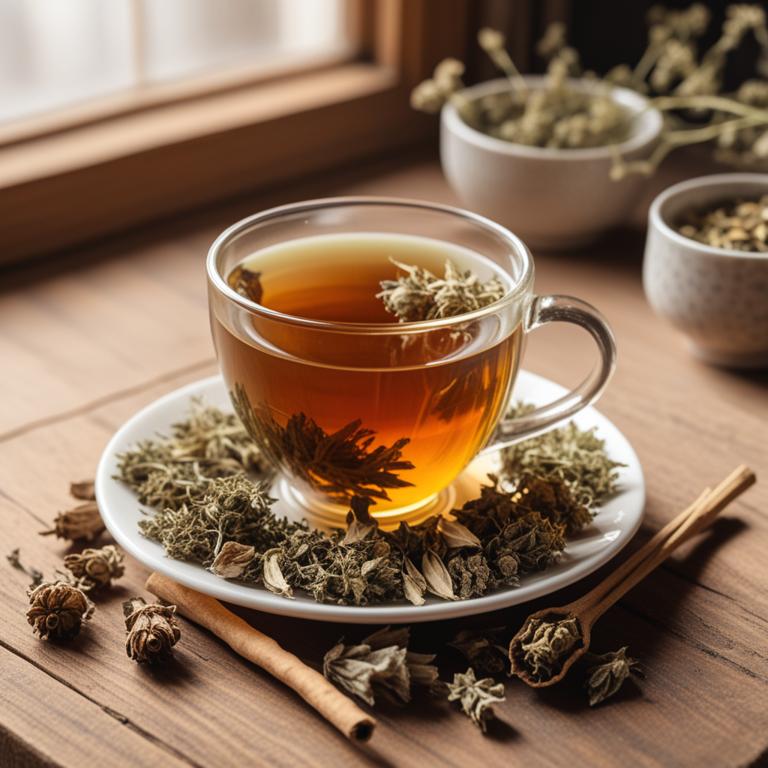
Herbal teas for Cholecystitis are a natural remedy that involves the use of plant-based teas to help alleviate the symptoms and inflammation of the gallbladder, a condition characterized by the inflammation of the gallbladder due to infection, gallstones, or other causes.
These herbal teas offer several benefits in treating cholecystitis, including reducing inflammation, soothing the digestive system, and promoting overall well-being.
Some examples of herbal teas that are commonly used to treat cholecystitis include peppermint tea, which helps to relax the muscles in the gallbladder and reduce inflammation, dandelion root tea, which aids in digestion and reduces bloating, ginger tea, which has anti-inflammatory properties and helps to ease nausea, turmeric tea, which contains curcumin, a natural anti-inflammatory compound, and licorice root tea, which helps to protect the gallbladder from inflammation and infection.
Additionally, other herbal teas such as milk thistle, chamomile, and lemon balm are also used to help soothe and calm the digestive system, and promote a speedy recovery from cholecystitis.
According to the "Journal of medicinal food", teas for cholecystitis may be a potential treatment option, as laurel tea extract was found to have potent anti-inflammatory compounds that could help manage chronic inflammation.
Below there's a list of the 9 best herbal teas for cholecystitis.
- 1. Silybum marianum teas
- 2. Equisetum arvense teas
- 3. Zingiber officinale teas
- 4. Ginkgo biloba teas
- 5. Urtica dioica teas
- 6. Panax ginseng teas
- 7. Verbascum thapsus teas
- 8. Cynara scolymus teas
- 9. Arctium lappa teas
Also you may be interested in...
TODAY'S FREE BOUNDLE
Herb Drying Checklist + Herbal Tea Shopping List + Medicinal Herbs Flashcards
Enter you best email address below to receive this bundle (3 product valued $19.95) for FREE + exclusive access to The Aphotecary Letter.
$19.95 -> $0.00
1. Silybum marianum teas

Silybum marianum teas, also known as milk thistle tea, have been traditionally used to treat cholecystitis, an inflammation of the gallbladder, due to its anti-inflammatory and antioxidant properties.
The bioactive constituents of Silybum marianum, including silymarin and flavonoids, help to protect the liver and gallbladder from damage, reducing inflammation and promoting healing.
The flavonoids and silymarin in milk thistle tea have been shown to have hepatoprotective effects, which can help to alleviate symptoms of cholecystitis, such as abdominal pain and nausea.
By reducing inflammation and promoting healing, Silybum marianum teas can help to alleviate symptoms of cholecystitis and support the recovery of the gallbladder.
2. Equisetum arvense teas
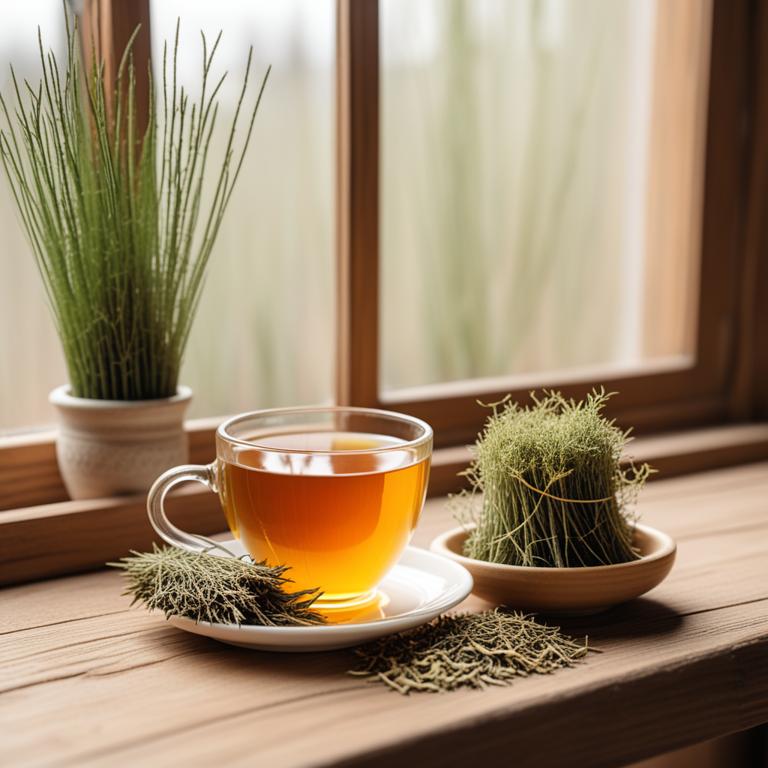
Equisetum arvense teas have been traditionally used to treat cholecystitis, a gallbladder inflammation, due to its anti-inflammatory and hepatoprotective properties.
This herbal preparation helps to treat cholecystitis by reducing inflammation, promoting the healing of the gallbladder, and regulating bile production.
The bioactive constituents of Equisetum arvense, including flavonoids, phenolic acids, and saponins, are responsible for its therapeutic effects, which include antioxidant and antimicrobial activities that aid in reducing the symptoms of cholecystitis.
The benefits of using Equisetum arvense teas to treat cholecystitis include reduced pain, improved liver function, and a faster recovery time.
3. Zingiber officinale teas

Zingiber officinale teas, also known as ginger tea, have been traditionally used to treat cholecystitis, a painful inflammation of the gallbladder.
This herbal preparation contains anti-inflammatory properties, such as gingerols and shogaols, which help to reduce inflammation and alleviate pain associated with cholecystitis.
The bioactive constituents of ginger, including 6-gingerol and 8-gingerol, have been shown to inhibit the production of pro-inflammatory cytokines and enzymes that contribute to the development of cholecystitis.
The benefits of using ginger tea to treat cholecystitis include reduced inflammation, pain relief, and improved digestion, making it a natural and effective remedy for this condition.
4. Ginkgo biloba teas

Ginkgo biloba teas have been traditionally used to treat cholecystitis, an inflammation of the gallbladder, due to their anti-inflammatory and hepatoprotective properties.
The bioactive constituents of Ginkgo biloba, such as flavonoids and terpenoids, help to reduce inflammation and oxidative stress in the gallbladder, thereby alleviating symptoms of cholecystitis.
The herbal preparation also helps to improve blood circulation and reduce bile duct pressure, which can contribute to the development of cholecystitis.
Regular consumption of Ginkgo biloba teas may help to prevent complications of cholecystitis and promote overall digestive health.
5. Urtica dioica teas

Urtica dioica teas, also known as nettle tea, have been traditionally used to treat cholecystitis, an inflammation of the gallbladder.
The anti-inflammatory and antioxidant properties of nettle tea help to reduce inflammation and alleviate symptoms associated with cholecystitis, such as abdominal pain and nausea.
The bioactive constituents of nettle tea, including flavonoids, saponins, and phenolic acids, have been shown to inhibit the production of pro-inflammatory cytokines and improve liver function, thereby helping to treat cholecystitis.
The benefits of using nettle tea to treat cholecystitis include reduced inflammation, improved digestion, and relief from symptoms, making it a natural and effective herbal remedy for this condition.
6. Panax ginseng teas

Panax ginseng teas have been traditionally used to treat cholecystitis, a condition characterized by inflammation of the gallbladder, due to its anti-inflammatory and antioxidant properties.
The bioactive constituents of Panax ginseng, including ginsenosides and saponins, help to reduce inflammation and promote healing in the gallbladder, thus alleviating symptoms associated with cholecystitis.
The herbal preparation's ability to improve blood circulation and stimulate the immune system also contributes to its effectiveness in treating this ailment.
By incorporating Panax ginseng teas into one's diet, individuals may experience relief from cholecystitis symptoms, such as abdominal pain and nausea, and potentially reduce the risk of complications related to the condition.
7. Verbascum thapsus teas
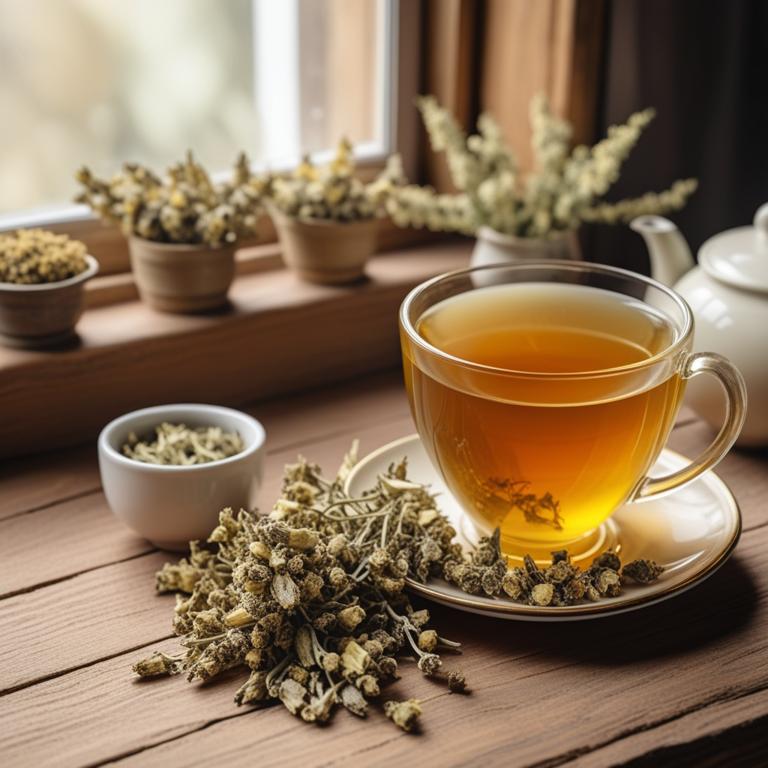
Verbascum thapsus teas, derived from the flowering plant Verbascum thapsus, have been traditionally used to treat cholecystitis, an inflammation of the gallbladder.
The anti-inflammatory and antimicrobial properties of this herbal preparation help to reduce inflammation and prevent bacterial infections in the gallbladder, thereby alleviating symptoms of cholecystitis.
The bioactive constituents of Verbascum thapsus teas, including iridoid glycosides, flavonoids, and phenolic acids, contribute to its therapeutic effects by inhibiting pro-inflammatory enzymes and modulating the immune response.
The benefits of using Verbascum thapsus teas to treat cholecystitis include reduced pain and inflammation, improved digestion, and enhanced overall well-being.
8. Cynara scolymus teas
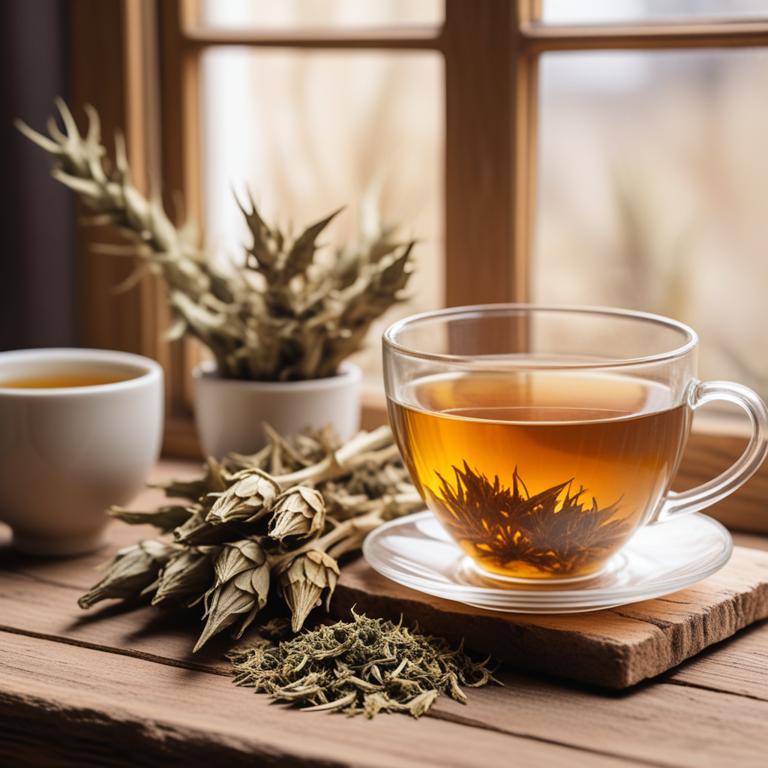
Cynara scolymus teas, also known as artichoke tea, have been traditionally used to treat cholecystitis, an inflammation of the gallbladder.
The anti-inflammatory and hepatoprotective properties of this herbal preparation help to reduce inflammation and protect the liver and gallbladder from further damage.
The bioactive constituents, including cynarin and silymarin, have been shown to help treat cholecystitis by improving liver function and reducing oxidative stress.
The benefits of Cynara scolymus teas in treating cholecystitis include reduced inflammation, improved liver function, and a lower risk of complications, making it a promising natural remedy for this condition.
9. Arctium lappa teas
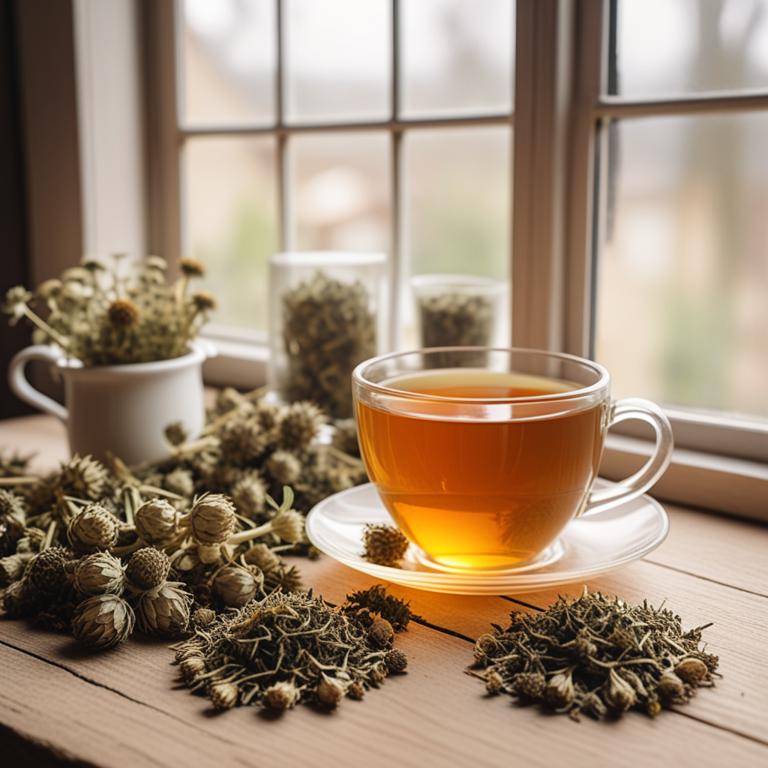
Arctium lappa teas, also known as burdock root tea, have been traditionally used to treat cholecystitis, an inflammation of the gallbladder.
The anti-inflammatory and antioxidant properties of this herbal preparation help to reduce gallbladder inflammation and promote healing.
The bioactive constituents of Arctium lappa tea, including inulin, arctiin, and polyphenols, contribute to its therapeutic effects by inhibiting inflammation and improving liver function.
Regular consumption of Arctium lappa tea may help alleviate symptoms of cholecystitis, such as abdominal pain and digestive issues, and promote overall digestive health.